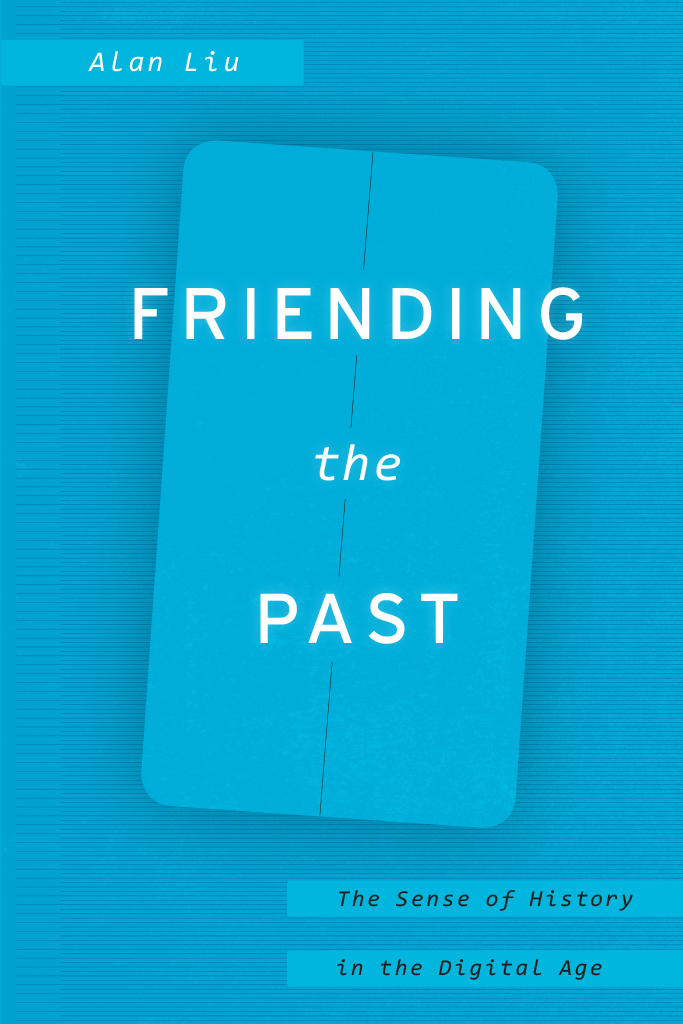
Friending the Past
Friending the Past
The Sense of History in the Digital Age
ALAN LIU
The University of Chicago Press
Chicago and London
The University of Chicago Press, Chicago 60637
The University of Chicago Press, Ltd., London
2018 by The University of Chicago
All rights reserved. No part of this book may be used or reproduced in any manner whatsoever without written permission, except in the case of brief quotations in critical articles and reviews. For more information, contact the University of Chicago Press, 1427 East 60th Street, Chicago, IL 60637.
Published 2018
Printed in the United States of America
27 26 25 24 23 22 21 20 19 18 1 2 3 4 5
ISBN -13: 978-0-226-45181-7 (cloth)
ISBN -13: 978-0-226-45195-4 (paper)
ISBN -13: 978-0-226-45200-5 (e-book)
DOI : https://doi.org/10.7208/chicago/9780226452005.001.0001
Library of Congress Cataloging-in-Publication Data
Names: Liu, Alan, 1953 author.
Title: Friending the past : the sense of history in the digital age / Alan Liu.
Description: Chicago : The University of Chicago Press, 2018. | Introduction: the sense of historyFriending the pastImagining the new media encounterWhen was linearity?Remembering networksLike a sense of history. | Includes bibliographical references and index.
Identifiers: LCCN 2018020207 | ISBN 9780226451817 (cloth : alk. paper) | ISBN 9780226451954 (pbk. : alk. paper) | ISBN 9780226452005 (e-book)
Subjects: LCSH : Social media and history. | CommunicationTechnological innovationsSocial aspects. | Digital mediaSocial aspects.
Classification: LCC PN 4560.3 . L 58 2018 | DDC 302.23/1dc23
LC record available at https://lccn.loc.gov/2018020207
 This paper meets the requirements of ANSI / NISO Z 39.48-1992 (Permanence of Paper).
This paper meets the requirements of ANSI / NISO Z 39.48-1992 (Permanence of Paper).
For Geoffrey Hartman
In memoriam
Contents
Geoffrey Hartman was never my teacher, but I was his student.
As an undergraduate at Yale University from 1971 to 1975, where it wasnt until my second year that I changed my major from chemistry to English, I did not know enough to take a course from Geoffrey. Later, when I returned to Yale as a junior faculty member in 1979, he gradually became my most formative intellectual influencethough I do not believe he knew it. I remember him taking me to lunch during my first year of teaching at Yale. At one point, he slipped off his glasses, hooked them in a corner of his mouth by a temple piece, and looked at me with the unmediated gaze of the ages. A steely gaze, I would say, but that would be to ignore the immense nuance, subtlety, and fundamental kindness of his rigor. I was being examined. But in the end I knew it was also a self-examination widening out to the acknowledgment that we are all found wantingnot in the sense of being inadequate, but in that of being in a state of intellectual and spiritual desiring.
I did not see Geoffrey often at Yale. Life was busy, and the junior and senior faculty ranks in the Yale system at that time were more separated than in most American university faculties. But in my years there, his intellectual influence became pervasive. Every literary critic, I suspect, identifies, yet also wrestles, with the primary authors to whom he or she first chooses to commitWilliam Wordsworth, in my case. But now I found myself also identifying with, though seeking space away from, my generations major critic of my primary author. I remember being away on leave one year in Madison, Wisconsin, trying to finish my book Wordsworth: The Sense of History (1989). In the University of Wisconsin library, I wrestled day after day, sentence by sentence, with Geoffreys Wordsworths Poetry, 17871814 (1964), absorbing the book at the level not just of ideas but of language and sensibility. Sometimes I would step out of the library, where I had left his book lying open in the reading room, to walk up the street a few blocks to a video-game arcade (this was the 1980s, after all). There I played Ataris Battlezone, a classic first-person-shooter tank warfare game. Battlezones simple wire-frame visualizations made its battles representationally abstract, but its excellent game-play made such abstraction visceral. In the game, one maneuvers with agility to fire at an opposing tank, to dodge return fire, and to flee or try to shoot down the sudden, always terrifying missiles with their loud, incoming roar. I became quite good at it. I guess it was an allegory of learning how to be a literary critic, and in particular of finding a way to maneuver against, or with, a master of the field.
Of course, given the brilliant lightness, deftness, and elliptical range of his thought (skipping along no known trajectory from poem to penetrating insight), Geoffrey was no tank. One would not think Wordsworth was, either. Except there is that boat-stealing episode in The Prelude with its huge cliff that strode after me as if on treads; and in Geoffreys Wordsworths Poetry, 17871814, there is a similar, sublime inexorability. Geoffreys main argument about nature leading beyond nature, and the poets final return (some would say, capitulation) to nature, was resistless. I do not know of a more powerful argument about the Romanticsor, for that matter, about the cultural moment of the 1970s and 1980s when, in the movement between so-called Yale deconstruction and the New Historicism, I came of intellectual age. I like to think that if influence could run in reverse, then both William and Geoffrey would have loved video games of the sort I playedones where an implacable enemy, like a force of nature, could ultimately be defeated by jumping to a different level, and where that jump had to be earned not through brute tactics but by deft, quick intelligence of spirit, mind, hands, and words.
During the late years, when he was focused on Holocaust studies, Geoffrey asked me once, after I had begun focusing on the digital humanities, Will you return to Wordsworth? He asked that on October 23, 2007. On the evening of that day, he was to lecture at the Santa Barbara Museum of Art in relation to Holocaust studiesan event co-organized by my insitution, the University of California, Santa Barbara. The lecture drew an enormous, engaged audience from both the community and the academy. But before, in the afternoon, he sat alone with me in my little office on campus in the chair my students usually takean uncanny reversal of teacher/student positions. That is when he asked, Will you return to Wordsworth? I do not remember my exact answer (likely some careful blur between yes and no that protected all my options), but I do remember my thought at the time, which I believe, but am not sure, I shared with him: that I could ask him the same. We were lovers of Wordsworth who went on to other scholarly and cultural areas of study. Prodigal sons, both.
At the end of my present book, in a section of titled The Lucy Algorithm, I do return to Wordsworth, but only in a light way that breaks no new ground in Romantic studies. Instead, the freshness there lies in juxtaposing well-known understandings of Romantic, and specifically Wordsworthian, temporality with the sense of history seen in digital timelines. I use memory and time in Wordsworths Lucy poems, The Prelude, and some other well-studied works to think about the particular kind of dynamic, ultimately nonlinear temporality experienced in digital web or social-media timelines today. Reciprocally, I use the code of JavaScript timelines in particular to resee the Lucy algorithm, as I call it, of Wordsworthian temporalitythe poetic timeline of
Next page
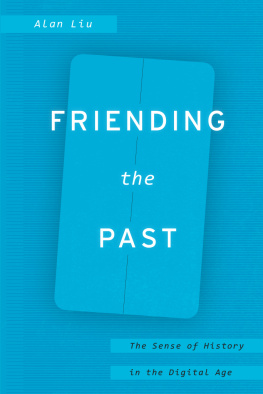

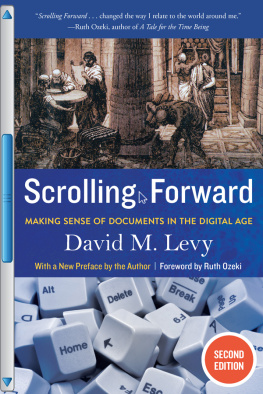
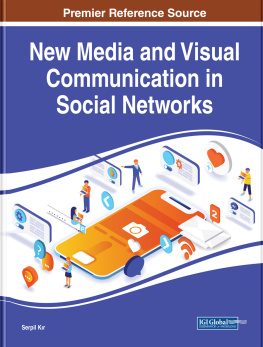
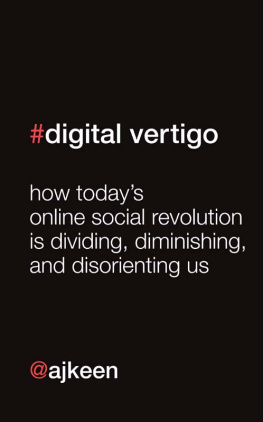
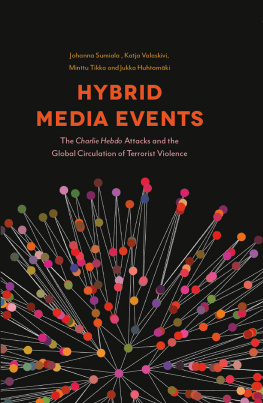
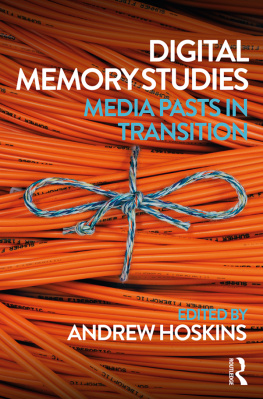
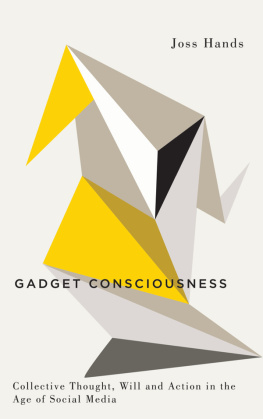
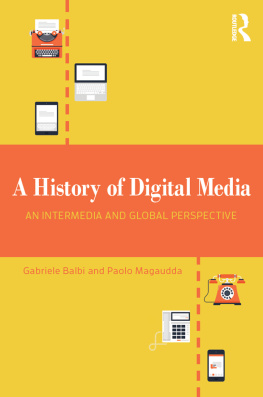
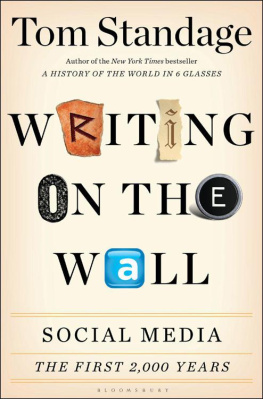

 This paper meets the requirements of ANSI / NISO Z 39.48-1992 (Permanence of Paper).
This paper meets the requirements of ANSI / NISO Z 39.48-1992 (Permanence of Paper).